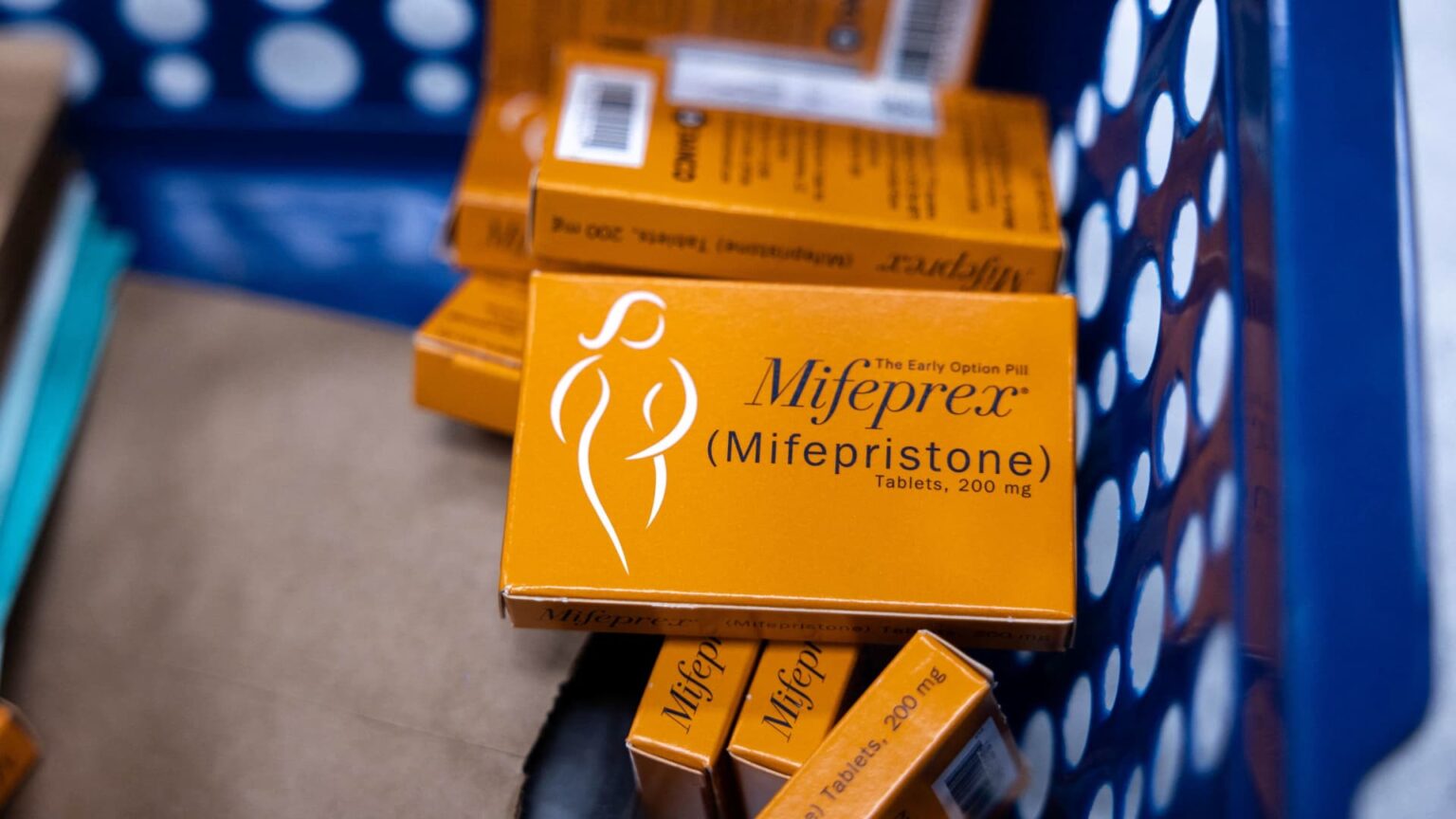A federal judge in Texas on Friday stayed the Food and Drug Administration’s approval of the abortion pill mifepristone, but delayed the ruling taking effect for a week, giving the Biden administration time to appeal.
Mifepristone was approved by the FDA more than 20 years ago. The much-awaited ruling comes nearly a year after the U.S. Supreme Court overturned the constitutional right to abortion that had been in effect since the early 1970s.
U.S. Judge Matthew Kacsmaryk of the U.S. Northern District of Texas held a key hearing in the case weeks ago in Amarillo, but the news of the decision that would upend access to the key abortion drug came down late on a Friday when many Americans were off for religious observances.
He endorsed nearly all of the plaintiffs’ arguments about their right to sue, which called for the removal of the FDA’s approval of the drug, and suggested that he believes the drug has serious safety issues notwithstanding the evidence the defendants offered to the contrary.
“The Court does not second-guess FDA’s decision-making lightly,” Kacsmaryk wrote. “But here, FDA acquiesced on its legitimate safety concerns — in violation of its statutory duty — based on plainly unsound reasoning and studies that did not support its conclusions.”
In a dramatic turn, a federal judge in Washington state issued a preliminary injunction minutes after the Texas decision was announced that said essentially the opposite.
Judge Thomas Owen Rice of the U.S. District for the Eastern District of Washington barred the FDA from “altering the status quo and rights as it relates to the availability of mifepristone” in the 18 attorneys general who sued to make sure mifepristone remains on the market in those states.
The Food and Drug Administration, abortion pill maker Danco Laboratories and the anti-abortion group Alliance Defending Freedom presented their arguments before Kacsmaryk in Amarillo, Texas weeks ago in March.
The alliance represents a coalition of physicians opposed to abortion called the Alliance for Hippocratic Medicine, which sued the FDA in November over its approval of mifepristone. The approval dates back more than two decades to 2000.
The group argued that the FDA abused its authority by approving mifepristone through an accelerated process for new drugs that help patients with serious or life-threatening illnesses more than what is otherwise available on the market.
The FDA, in its response, called the lawsuit “extraordinary and unprecedented.” The agency’s lawyers said they could not find any previous example of a court second-guessing an FDA decision to approve a drug.
The agency also said mifepristone was not approved under an accelerated pathway. It took more than four years from the filing of the initial application until the pill was approved.
The FDA approved mifepristone as a safe and effective method to terminate an early pregnancy based on extensive scientific evidence, the agency’s lawyers wrote. Decades of experience among thousands of women have confirmed that the drug regimen is the safest option for many patients compared with surgical abortion or childbirth, the lawyers argued.
The FDA warned that pulling mifepristone from the U.S. market would put the health of women at risk if they cannot get access to the pill to safely end pregnancies. It would also weaken the FDA’s federal drug approval powers and hinder drug development by creating regulatory uncertainty in the marketplace, the government’s lawyers have said.
“If longstanding FDA drug approvals were so easily enjoined, even decades after being issued, pharmaceutical companies would be unable to confidently rely on FDA approval decisions to develop the pharmaceutical-drug infrastructure that Americans depend on to treat a variety of health conditions,” the Biden administration lawyers wrote.
Mifepristone has become the central flashpoint in the legal battle over access to abortion since the conservative majority on the Supreme Court overturned Roe v. Wade last June. Used in combination with another drug called misoprostol, mifepristone is the most common method to terminate a pregnancy in the U.S., accounting for about half of all abortions
Mifepristone has been subject to FDA restrictions since its approval in 2000 to monitor the pill’s safety and efficacy. These restrictions have been subject to criticism and litigation from medical associations such as the American College of Obstetricians and Gynecologists and more recently from attorneys general in Democratic- led states.
The FDA has gradually eased the restrictions on mifepristone over the years as more evidence has come in. The agency dropped previous rules that required in-person visits with medical professionals, allowing the pill’s delivery by mail. The FDA recently allowed certified retail pharmacies to dispense mifepristone when the patient has a prescription from a health-care provider that’s approved under the agency’s monitoring program.
Misoprostol, the drug that’s used with mifepristone, is recommended as a stand-alone method to terminate a pregnancy by the World Health Organization. But the FDA has not approved misoprostol as an abortion medication on its own.
The American College of Obstetricians and Gynecologists recommends misoprostol as an alternative for early abortions if mifepristone is not available, though it’s not as effective as the two-drug regimen, according to the organization.
Read the full article here










